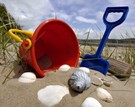|
If you’re planning to transfer currency for an overseas investment, you’ll probably
talk to your high-street bank. Don’t! You’ll save money by going to a specialist currency exchange dealer. Send all your international transfers through currency dealers rather than banks. Why? They give you a better exchange rate, lower costs and a speedier service. This is a constant source of annoyance to the banks but they can't compete with dealers. An average high-street bank will probably offer spot rate (the real, interbank, rate of exchange), less 4 per cent. An average currency dealer will offer an ordinary customer spot rate, less 2 per cent. On a £100,000 transfer you save £2,000 on the exchange rate alone. The dealers will be quicker too. In the days before currency dealers became popular, the money would be send by a UK bank to another country via another bank in the local country who would then eventually send it to the end bank. There were three banks involved but, more crucially, there would be a bank in the middle that didn't really care how long it took them to send the money! Check the Charges When it comes to comparing dealers, it is worth remembering that, in addition to exchange rate differences, there are also differences in charges. Currency dealers typically charge less than high-street banks for transferring money abroad. In fact, many of them don't charge anything at all or, more accurately, they incorporate the fees into the exchange rate. One example of this is - two transfers to Turkey done through a well-known high-street bank. The first for £100,000 and the second was for £200,000. The high street bank charged fees of £535 and £1035 respectively. This is a total of £1,570 just in bank charges. A currency dealer would have charged either nothing or a nominal amount such as £20 (i.e. a saving of £1,550). And remember that this is in addition to the exchange rate differences (which probably amount to another couple of thousand pounds). Link to our currency exchange partner page - LINK The Con-Trick
Here’s how it works. When you’re on the beach, you’ll be offered scratch cards. They’re a euro or two, that’s all. But you could win a big prize. And guess what, you’ve gone and won a big one! All you’ve got to do is go along to a free holiday presentation to collect it. Holidaymakers do. Heck, why not? It’s only a morning and it’s a real big prize! The presentation’s slick and impressive and you’re offered the chance to join an exclusive holiday club offering exciting, value-for-money holidays all over the world. Only the very best accommodation and at really low prices – after all, you’re in the club. And people sign up! Problem is you could get the same holidays at the same prices online and even at your local travel agency. Even worse, by the time you get home, that holiday club has disappeared. The OFT’s Advice The OFT warns consumers about what happens. They’re saying that 400,000 UK consumers fall victim to these clubs at a cost of over £1 billion each and every year. 400,000! That’s a city the size of Bristol. This is a big scam and lots of ordinary people are being conned. The con-artists say that the special discounted offer is only valid for that day, encouraging people to sign up or miss out. These scam-artists just won’t let you go. You’re never left alone to discuss anything with your partner. And you are given a very limited time to view the contract! The Bottom Line The OFT says that if you go along to a presentation you should ask three simple questions. Do you give cooling off rights? Is everything you promised in the presentation in the contract? Can I take away the contract to consider at my leisure? If the answer to any of these questions is no, walk away. That’s sometimes easier said than done. Some presentations last so long that some people sign up just to get away. The best advice is simple – don’t even buy the scratch card in the first place! Have a great holiday. Get a tan. Have a nice swim. Go and see the sights. And don’t get conned by this scam. For the best holiday money rates follow the link - CURRENCY Even though yesterday was a bank holiday in the UK, the currency markets were still open, with the euro suffering against most major currencies after the elections
over the weekend. The voter backlash against recent austerity measures has bought in a new president in France, with the new president, Francois Hollande, wanting a more growth friendly approach and renegotiation of the fiscal compact. This puts France on a collision course with Germany and the EU who are firmly against any renegotiation. In addition to this, Greece has also caused more pain for the struggling single currency, as the 2 main parties supporting the country’s international bailout failed to secure a parliamentary majority, raising further questions of Greece’s membership of the euro. Due to the level of uncertainty the new government in France and lack of any majority in Greece Sterling gained further ground against the euro, moving to a 3 ½ year high against the single currency. Now that the rate has moved above the 2010 high of €1.24, the door is potentially open for further gains, especially in the short term whilst Greece struggles to form a government. One word of caution to any euro buyers, is once the uncertainty over Greece is resolved we could see these recent gains given back and the pair drift back towards the low €1.20’s If you wish to forward purchase your currency whilst rates are high contact our currency partners - LINK |
AuthorInvestment Property Worldwide will try bring to you a diverse range of property, investment news. Archives
October 2014
Categories
All
|
| Investment Property Worldwide.com |
|



 RSS Feed
RSS Feed
